Exiled Russians Are Potent Allies in Pushing Back Putin’s Surrender of Ukraine narratives
How Russians in exile can help counter Putin’s narratives
By Roland Freudenstein October 11, 2024
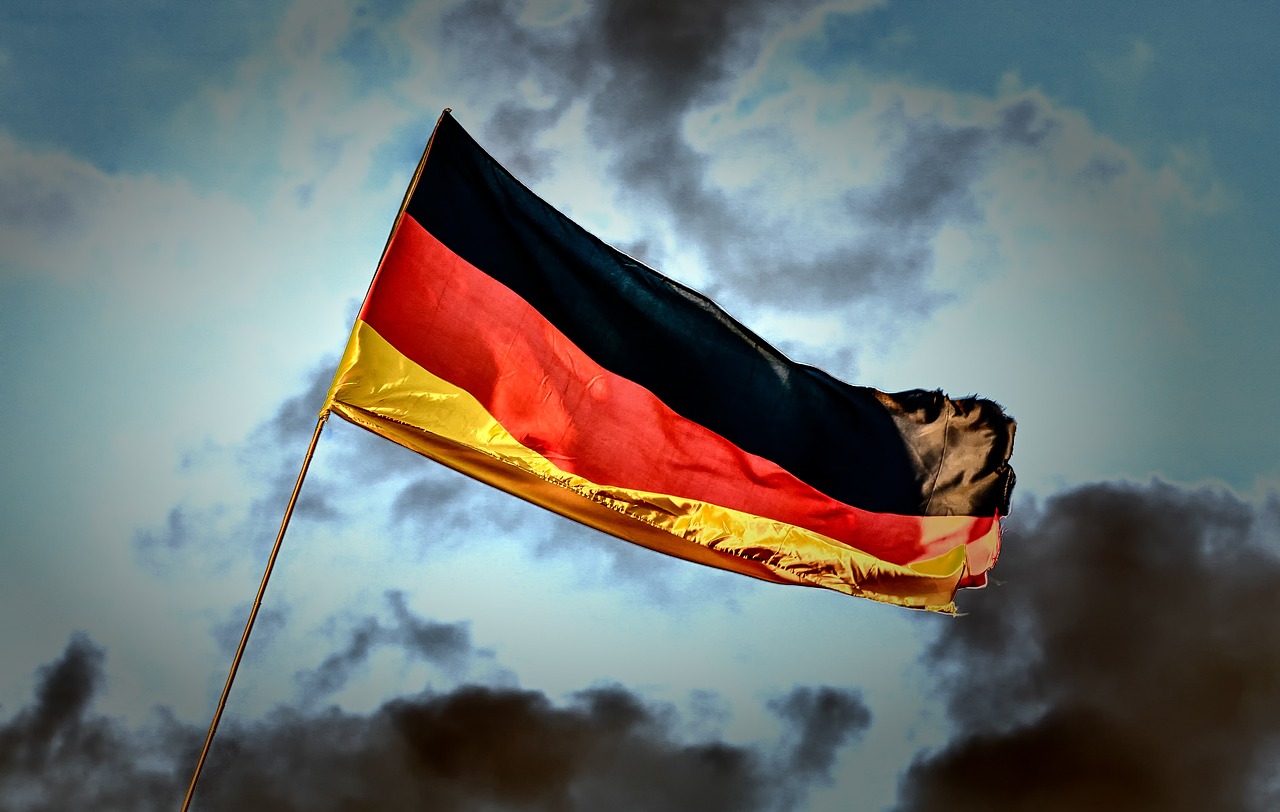
How Russians in exile can help counter Putin’s narratives
By Roland Freudenstein October 11, 2024

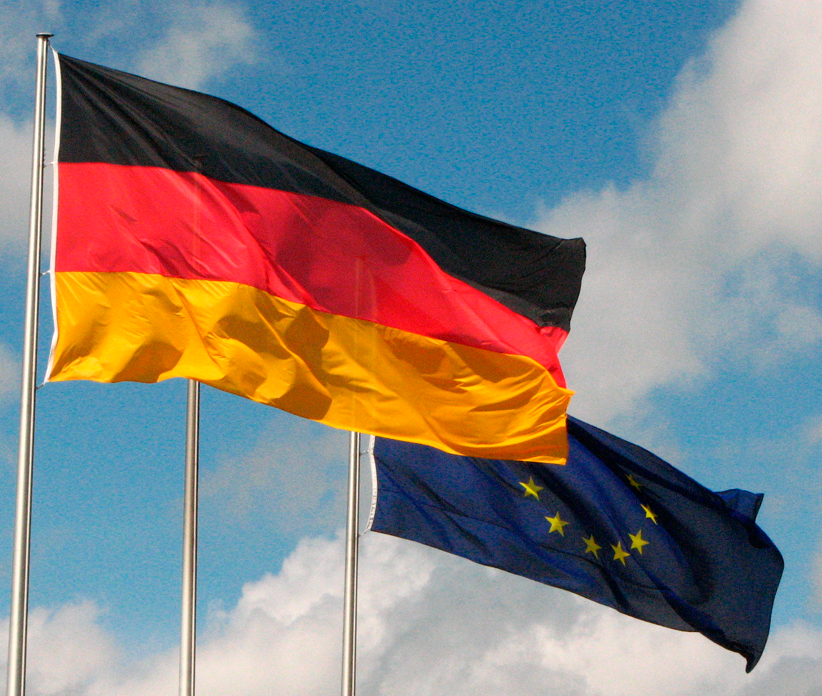

As was feared over the entire summer based on opinion polls, the three regional elections are a disaster for the Berlin coalition under Chancellor Olaf Scholz’ Social Democrats with Greens and Liberals. Of course, these are Eastern Länder (states), with a very specific public political discourse, and all three election results are markedly different from all existing opinion polls for national elections where centrist parties maintain a strong lead of about 70 vs 30%.
A particular aspect of this election was that the extreme right‑wing AfD (Alternative für Deutschland) and the populist BSW (Bündnis Sahra Wagenknecht) could mobilize not only general frustration but a newly reinforced gap between East and West in Germany. This refers less to material differences in income but rather to perceived discrimination as former citizens of communist Germany.
During the campaigns, BSW and AfD both drew heavily on a peace narrative which excused Russian aggression, blamed the war on NATO and suggested to force Ukraine into territorial and political surrender.
As was feared over the entire summer based on opinion polls, the three regional elections are a disaster for the Berlin coalition under Chancellor Olaf Scholz’ Social Democrats with Greens and Liberals. Of course, these are Eastern Länder (states), with a very specific public political discourse, and all three election results are markedly different from all existing opinion polls for national elections where centrist parties maintain a strong lead of about 70 vs 30%.
A particular aspect of this election was that the extreme right‑wing AfD (Alternative für Deutschland) and the populist BSW (Bündnis Sahra Wagenknecht) could mobilize not only general frustration but a newly reinforced gap between East and West in Germany. This refers less to material differences in income but rather to perceived discrimination as former citizens of communist Germany.
During the campaigns, BSW and AfD both drew heavily on a peace narrative which excused Russian aggression, blamed the war on NATO and suggested to force Ukraine into territorial and political surrender.
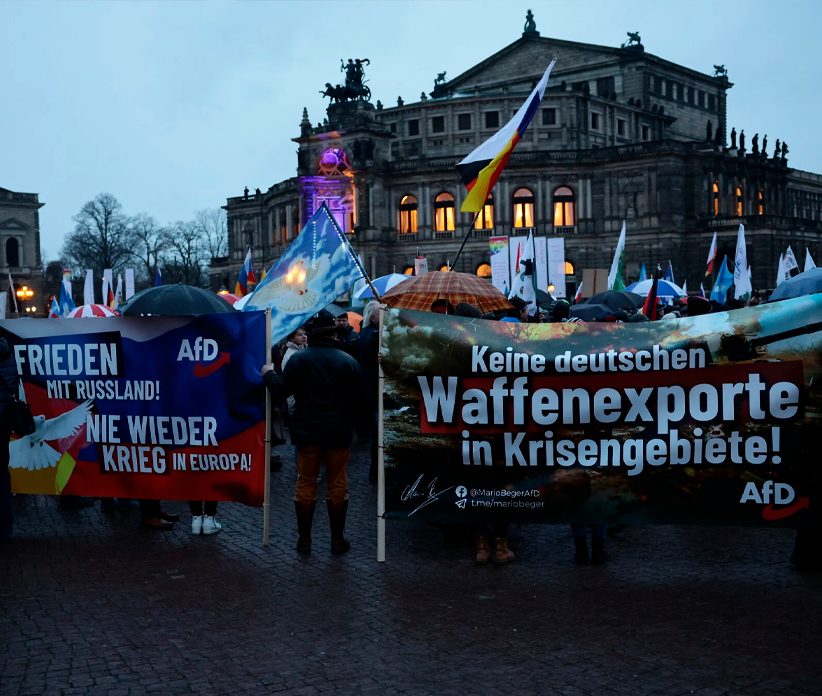

These views are much more popular in the East than the West of Germany and they result from a lack of Westernization there and a palpable tendency to embrace statist, collectivist and authoritarian ideas. But it’s important to state here that Länder have no say over foreign policy.
That is why, for the time being, the effects will be felt only in public discourse, but Chancellor Scholz’ advocacy for peace negotiations in the Ukraine war in early September (without any concrete peace plan) was clearly due to his panic after Thuringia and Saxony and before the Brandenburg election.
These views are much more popular in the East than the West of Germany and they result from a lack of Westernization there and a palpable tendency to embrace statist, collectivist and authoritarian ideas. But it’s important to state here that Länder have no say over foreign policy.
That is why, for the time being, the effects will be felt only in public discourse, but Chancellor Scholz’ advocacy for peace negotiations in the Ukraine war in early September (without any concrete peace plan) was clearly due to his panic after Thuringia and Saxony and before the Brandenburg election.
Here is the danger of the new trend in German politics: in all three Länder, the populist BSW which straddles classical notions of left and right, may end up in power as a junior partner — and the AfD as a powerful opposition. Of course, this rebuke of the current government in Berlin has many domestic components, such as federal migration and climate policies as well as Germany’s newly grown socioeconomic divisions (East‑West, urban‑rural).
Here is the danger of the new trend in German politics: in all three Länder, the populist BSW which straddles classical notions of left and right, may end up in power as a junior partner — and the AfD as a powerful opposition. Of course, this rebuke of the current government in Berlin has many domestic components, such as federal migration and climate policies as well as Germany’s newly grown socioeconomic divisions (East‑West, urban‑rural).
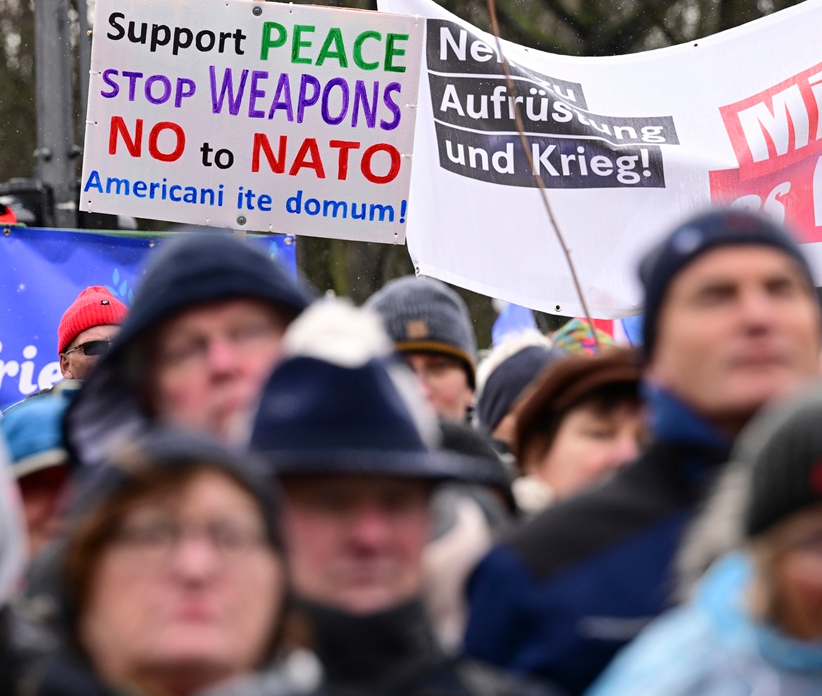

Kremlin propaganda seeks to exploit these tensions — this has been the classic recipe of Russian hostile influence and information manipulation since the US election of 2016. But beyond that, especially in Germany, Putin uses anti‑Western and pro‑Russian narratives that have been staple ingredients of German nationalism for more than a century — and reinforces them.
This happens directly through Russian state media such as RT or even Russian embassies, front organizations in media and civil society as well as a host of instruments on social media (trolls, bots etc.).
Nationalist and populist German politicians such as Sahra Wagenknecht from BSW happily use such narratives, especially when they refer to the alleged futility of supporting Ukraine and resisting the Kremlin, as well as the eternal claim that forcing Ukraine into peace negotiations and political and territorial concessions on Putin’s terms (i.e. de facto surrender) would help peace and security in Europe.
Kremlin propaganda seeks to exploit these tensions — this has been the classic recipe of Russian hostile influence and information manipulation since the US election of 2016. But beyond that, especially in Germany, Putin uses anti‑Western and pro‑Russian narratives that have been staple ingredients of German nationalism for more than a century — and reinforces them.
This happens directly through Russian state media such as RT or even Russian embassies, front organizations in media and civil society as well as a host of instruments on social media (trolls, bots etc.).
Nationalist and populist German politicians such as Sahra Wagenknecht from BSW happily use such narratives, especially when they refer to the alleged futility of supporting Ukraine and resisting the Kremlin, as well as the eternal claim that forcing Ukraine into peace negotiations and political and territorial concessions on Putin’s terms (i.e. de facto surrender) would help peace and security in Europe.
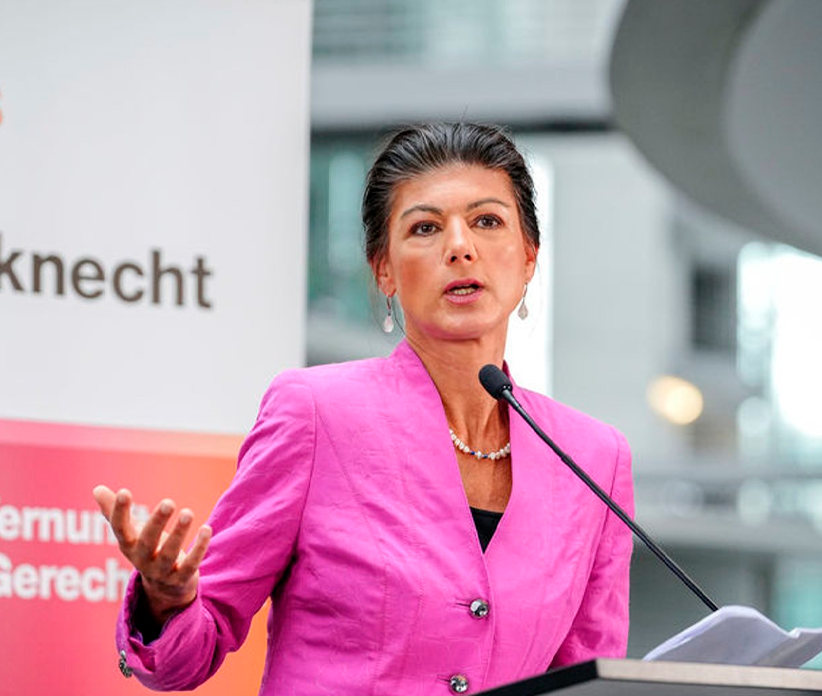

The long‑term danger emanating from this should not be underestimated. If populist and nationalist narratives about Russia, Germany and Europe continue conquering the German mainstream, future German governments might be tempted to return to the old German Sonderweg (special path) between the West and Russia — an excellent recipe for disaster, not only in Ukraine, and arguably the end of the West as we know it.
The long‑term danger emanating from this should not be underestimated. If populist and nationalist narratives about Russia, Germany and Europe continue conquering the German mainstream, future German governments might be tempted to return to the old German Sonderweg (special path) between the West and Russia — an excellent recipe for disaster, not only in Ukraine, and arguably the end of the West as we know it.
The response to this challenge should come from several directions: Centrist parties in Germany, Germany’s partners and allies and, not least, from pro‑democracy Russians. Mainstream politicians need to deliver better results, both regarding economic growth which benefits the majority and regarding better control of immigration.
Germany’s allies should keep on reminding all future governments in Berlin of their obligations and commitments, such as higher defense spending and a role in European security commensurate with Germany’s size and wealth.
The response to this challenge should come from several directions: Centrist parties in Germany, Germany’s partners and allies and, not least, from pro‑democracy Russians. Mainstream politicians need to deliver better results, both regarding economic growth which benefits the majority and regarding better control of immigration.
Germany’s allies should keep on reminding all future governments in Berlin of their obligations and commitments, such as higher defense spending and a role in European security commensurate with Germany’s size and wealth.
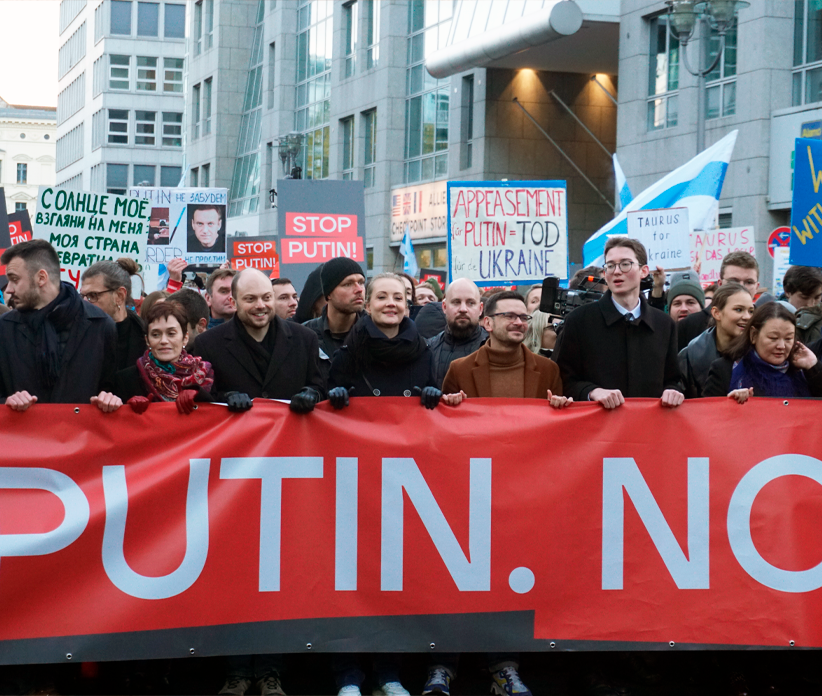

But besides that, pro‑Kremlin narratives in German public discourse must be tackled much more offensively. That goes for government, centrist parties and civil society at large.
In this effort, pro‑democracy Russians can and should play a crucial role. They can explain Kremlin strategies and tactics from their own two and a half decades of painful experience in Russia itself. And they can help centrist leaders to emphasize how dangerous any compromise with Putin would be.
Precisely because of their past and their still existing connections to Russian society today (thanks to social media and modern means of communication), they can argue that to give in to Putin will only encourage him to attack even more brazenly. They can detect Kremlin narratives on social media and in public discourse with more competence and credibility than many Western actors.
Democratic leaders and German civil society actors should use this potential of Russian democrats much more actively, in publications as well as events. If the three East German regional elections have sharpened German leaders’ perception of this, then not everything was bad about the vote in Thuringia, Saxony and Brandenburg.
But besides that, pro‑Kremlin narratives in German public discourse must be tackled much more offensively. That goes for government, centrist parties and civil society at large.
In this effort, pro‑democracy Russians can and should play a crucial role. They can explain Kremlin strategies and tactics from their own two and a half decades of painful experience in Russia itself. And they can help centrist leaders to emphasize how dangerous any compromise with Putin would be.
Precisely because of their past and their still existing connections to Russian society today (thanks to social media and modern means of communication), they can argue that to give in to Putin will only encourage him to attack even more brazenly. They can detect Kremlin narratives on social media and in public discourse with more competence and credibility than many Western actors.
Democratic leaders and German civil society actors should use this potential of Russian democrats much more actively, in publications as well as events. If the three East German regional elections have sharpened German leaders’ perception of this, then not everything was bad about the vote in Thuringia, Saxony and Brandenburg.
By Roland Freudenstein
June 12, 2024
 Report
Report “Many will be surprised to hear it, but there are still elections ,” — Alexey Navalny
By Free Russia Foundation
September 22, 2023

By Roland Freudenstein
June 12, 2024
 Report
Report “Many will be surprised to hear it, but there are still elections ,” — Alexey Navalny
By Free Russia Foundation
September 22, 2023
